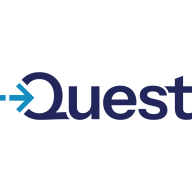

IBM InfoSphere Information Server and erwin Data Catalog compete in the data management platforms category. IBM often has the upper hand with comprehensive integration tools, while erwin excels in metadata management capabilities.
Features: IBM InfoSphere Information Server integrates tools, manages data quality, and processes data in real-time. erwin Data Catalog focuses on metadata management, automates data mapping, and handles change management. erwin’s metadata focus balances IBM's robust integration capabilities.
Ease of Deployment and Customer Service: IBM InfoSphere Information Server has a complex deployment process but offers strong support. erwin Data Catalog is easier to deploy with responsive customer service, appealing to those seeking simpler implementation.
Pricing and ROI: IBM InfoSphere Information Server has a higher setup cost, justified by its feature set for larger enterprises. erwin Data Catalog is more budget-friendly with a strong ROI for metadata-centric projects. Organizations should weigh budget and needs, as erwin may provide a balanced investment for those focused on metadata management with limited budgets.
| Product | Market Share (%) |
|---|---|
| IBM InfoSphere Information Server | 2.7% |
| erwin Data Catalog | 2.8% |
| Other | 94.5% |


| Company Size | Count |
|---|---|
| Small Business | 3 |
| Midsize Enterprise | 1 |
| Large Enterprise | 3 |
erwin Data Catalog empowers businesses to efficiently manage their data assets, providing a comprehensive overview and governance capabilities. It supports metadata management, enhancing data discovery and curation processes.
erwin Data Catalog offers robust data management tools that streamline data discovery, lineage, and governance. Designed for sophisticated data environments, it ensures efficient metadata control, providing users with an intuitive way to handle and leverage extensive data assets. Its features cater to enterprises looking to optimize data compliance and transformation strategies.
What are the main features of erwin Data Catalog?erwin Data Catalog is successfully implemented in industries such as finance, healthcare, and retail, enabling these sectors to leverage vast data volumes effectively. It enhances operational efficiency by streamlining data management practices, ensuring compliance, and supporting critical data-driven decision-making processes.
We monitor all Metadata Management reviews to prevent fraudulent reviews and keep review quality high. We do not post reviews by company employees or direct competitors. We validate each review for authenticity via cross-reference with LinkedIn, and personal follow-up with the reviewer when necessary.